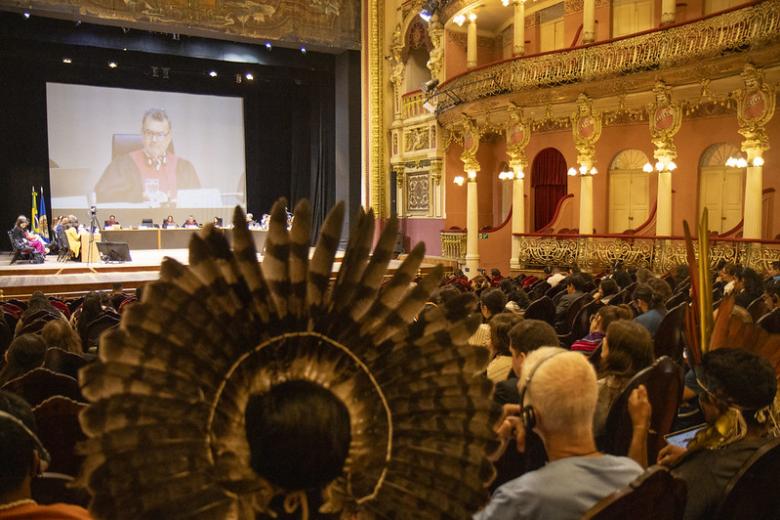Academic Etiquette and Legal Conferences
Everyone learns by attending academic events where best practices prevail. There is value in observing the work of experts and in being exposed to different ideas that can serve as models. After all, participants–both active and passive–can benefit from following an academic etiquette that helps secure the development of ideas and the nurturing of enriching social and academic behaviours
Time is of the essence
Academics–both established and in a gestation stage–have to make choices on where and how to spend their time at legal conferences. Decisions are investments, and participation has currently no limits due to the hybrid nature of many academic events. In that context, it is important to remember that participants in a legal conference can benefit from following an academic etiquette before the event takes place, during the event itself, and once the event ends. Active and passive roles in those legal conferences call for specific academic and social behaviours.
Ex ante Etiquette
Participants–who take an active role by presenting a paper–have to prepare before attending an academic event. They must practice (and practice) their presentations, being aware of the time they have been allotted and the audience they will address. Academic dialogue can be fostered by introducing themselves to the co-panellists and to the audience at large (nb, name tags are very useful). Participants–who take a passive role by attending a session–likewise have to prepare. They need to register for the event, since this helps the organizers in their planning. They further need to read the programme (and abstracts of papers if available) in order to decide which sessions to attend. Ideally, participants will identify sessions that have topics and scholars related to their field of work, yet they will be likewise open to attend other sessions where their academic curiosity might lead them. Finally, preparing for a session is beneficial since it gestates prior knowledge that derives from undertaking preliminary (re-)readings of seminal works and by revisiting ideas.
Ex dure Etiquette
Active participants–during their sessions–should abide to the rules established by the organizers of the academic event and by their moderators. Acting in a welcoming manner helps to nurture an open environment, where other participants can feel free to interact. There is a golden rule: no one should listen only to her/himself. Curiosity can lead the path of everyone and ignite the interest of attending the presentations of other participants. There is value in reacting to questions/comments that are raised by other participants, while taking notes of those interventions helps to return to them during the session and once the participants return to their research spaces. There is value in attending coffee breaks before and after presenting in a session, since many of the interesting questions/comments and most of the networking takes place during those breaks. Passive participants should try to avoid leaving a session while a speaker is presenting, since this is disruptive for everyone in the room. Dialogue is fostered when participants introduce themselves at the moment of taking the floor. Being polite–always–is of the essence and it is not incompatible with being critical. Mini-lecture questions/comments are detrimental in a Q&A part, taking much time and providing occasionally redundant information for those participants that prepared before the academic event. Attending an academic event requires openness and willingness to challenge uncontested dogmas or myths. Innovative ideas can be tested at academic events and everyone can benefit from that testing ground.
Ex post Etiquette
An academic event persists through time, when participants–both active and passive–return to the occurrences that took place in that environment. Active participants must thank organizers and moderators when an academic environment is secured for ideas to be shared and developed. That achievement should not go unnoticed or taken for granted. Back in the research spaces, active participants will benefit when being open to engage with other participants who might outreach to them via email or other platforms, noting once more that interests can be interconnected. Active participants would also benefit from seeking feedback from colleagues and from a process of self-reflection on their performances and on the questions/comments they received. Finally, they can benefit by transcribing the questions/comments they received (and if possible, from whom they received them) and their reactions to those interventions. This information will be important when the researcher returns to the working space, to reassess a research and reasoning cycle and the paths to move on. Passive participants can benefit from adding to their logbooks the academic events they attended, since it would help them keep track of who said what where. They can always return to those living documents later while in their research spaces. Passive participants can engage in academic dialogue by emailing the speakers that presented on topics they find of special interest, sharing comments or follow-up questions. Finally, participants at a legal conference will be ambassadors for those colleagues who could not attend the academic event. Hence, they have a responsibility to spread the good word and the novel ideas in their academic communities.
A. Parise
Agustín Parise (Buenos Aires, Argentina) is Associate Professor of Law at the Faculty of Law of Maastricht University. He received his degrees of LL.B. (abogado) and LL.D. (doctor en derecho) at Universidad de Buenos Aires (Argentina), where he was Lecturer in Legal History during 2001-2005. He received his degree of LL.M. at Louisiana State University Law Center (USA), where he was Research Associate at the Center of Civil Law Studies during 2006-2010.

-
A Glimpse into My EPIP 2025 Journey: Patents, Gene Editing and Food Security
From 10–12 September, I joined the 20th Annual Conference of the European Policy for Intellectual Property Association (EPIP) in Antwerp, a lively gathering of scholars exploring the intersections of intellectual property (IP), innovation and policy. For me, it was a chance to present my paper and...

-
The Obligations of States in Respect of Climate Change – A Landmark Opinion of Urgency and Hope
On 23 July 2025, the International Court of Justice (ICJ) handed down its much anticipated Advisory Opinion on the Obligations of States in respect of Climate Change. This case represents the highest example of climate litigation to date, with the Court joining numerous other international courts...

-
The way to Geneva and INC-5.2 after the IACtHR Advisory Opinion on the Climate Emergency and Human Rights
How might the IACtHR Advisory Opinion on climate emergency and human rights reshape the Plastics Treaty negotiations?
